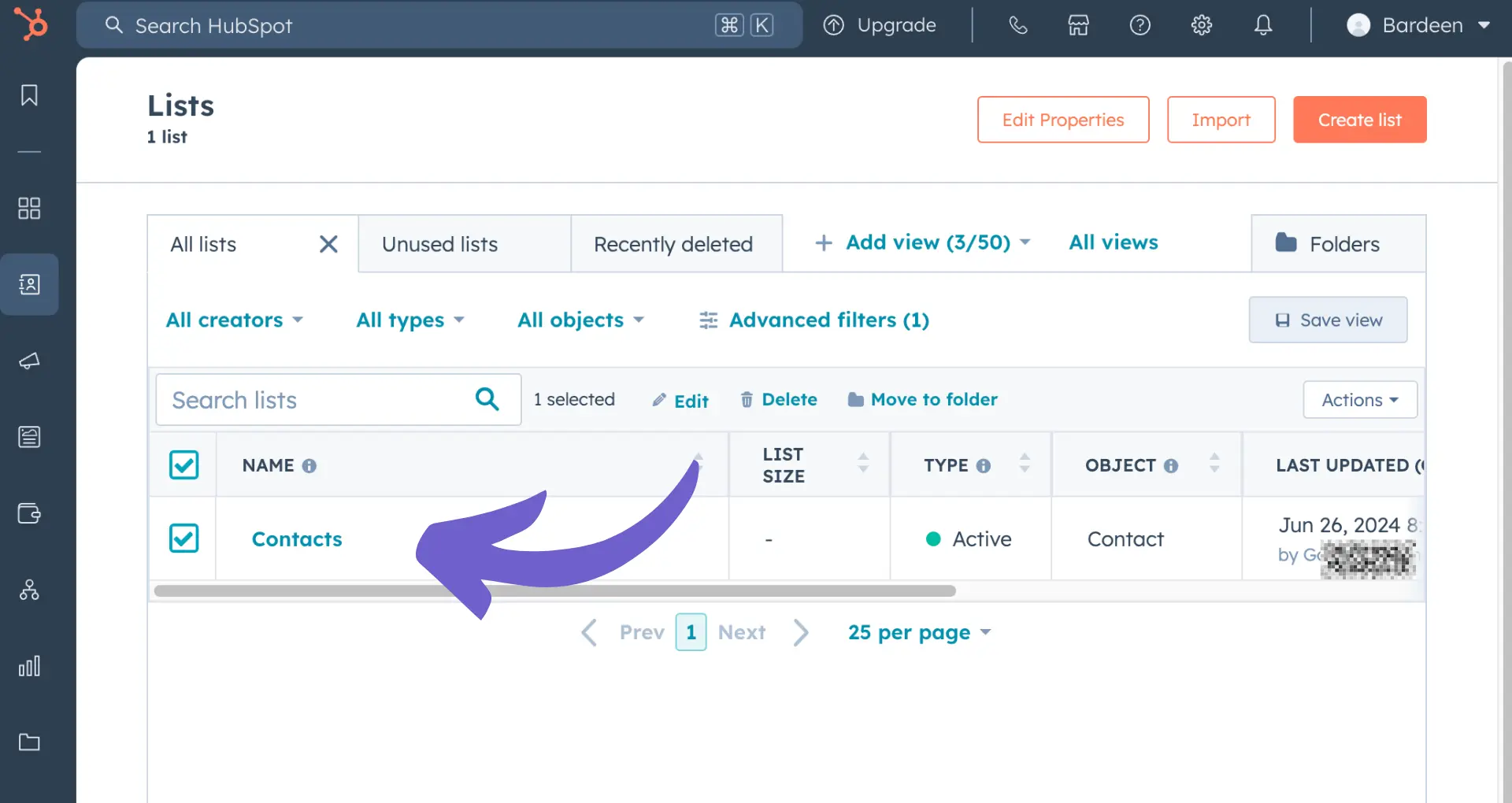Sales administration is the backbone of any successful sales organization. Over 180,000 sales administrators are employed in the US, with 79% being women. In this comprehensive guide, we'll dive into the critical role sales admins play in supporting sales teams, managing data, optimizing processes, and driving revenue growth.
Discover the key responsibilities, essential skills, and performance metrics that define success in this field. Plus, learn how AI-powered tools like Bardeen can help automate repetitive tasks and boost productivity. By the end, you'll have a clear understanding of what it takes to excel as a sales administrator and make a real impact on your company's bottom line.
Definition and Importance of Sales Administration
Sales administration involves managing and optimizing the sales process to support sales reps and drive overall sales success. It differs from other sales roles like account executives who focus on closing deals.
Having dedicated sales admin professionals is crucial for:
- Ensuring sales data accuracy and quality
- Generating insightful sales reports and analytics
- Streamlining sales workflows and processes
- Enabling sales reps to focus on revenue-generating activities
The key objectives of sales administration include:
1. Supporting Sales Reps
Sales administrators provide vital assistance to sales reps by handling time-consuming administrative tasks. This frees up reps to concentrate on prospecting, building relationships, and closing deals.
For example, sales admins may update CRM records, generate quotes and contracts, and coordinate logistics like shipping products or scheduling onboarding sessions. By taking these to-dos off sales reps' plates, admins help them be more productive.
2. Managing Sales Data and Reporting
Accurate data is the lifeblood of any high-performing sales org. Sales administrators are responsible for ensuring the integrity of data in the CRM and other sales platforms.
They establish data entry standards, perform regular data maintenance, and generate reports on sales activity, pipeline health, forecasting, and more. These insights are essential for sales leaders to monitor performance and make strategic decisions.
3. Optimizing Sales Processes
Sales administrators take a high-level view of the entire sales process to identify inefficiencies and bottlenecks. They collaborate with sales ops to implement improvements that enable the team to work smarter.
This may involve automating repetitive tasks, refining workflows, creating templates and playbooks, and evaluating sales tech. By continuously optimizing the sales process, admins help maximize team productivity and effectiveness.
Sales administration is a critical sales function that directly impacts the success of sales teams. Dedicated admins provide the support and insights to drive sales efficiency and revenue performance.
Next up, we'll take a closer look at the core responsibilities of sales administrators and what their day-to-day entails. You'll discover the key ways these unsung heroes empower sales teams behind the scenes.
Core Responsibilities of Sales Administrators
Sales administrators wear many hats to support sales teams and drive revenue. Their core responsibilities span data management, reporting, process optimization, and more.
Let's take a closer look at the key areas sales admins focus on:
1. Managing Sales Data
Accurate, up-to-date data is critical for sales success. Sales administrators are responsible for maintaining data hygiene in the CRM and other sales platforms. Lead enrichment can help maintain clean data.
This involves tasks like updating contact records, building targeted lists, and documenting important information. By ensuring data is clean and actionable, admins enable reps to work efficiently and effectively.
2. Generating Reports and Analytics
Sales leaders rely on timely, insightful reporting to monitor performance and guide decision-making. Administrators produce a variety of reports on sales activity, pipeline health, forecasting, and more.
They may also conduct deeper analysis to uncover trends, identify opportunities, and provide strategic recommendations. These insights help leaders optimize sales strategies and resource allocation.
3. Optimizing Sales Processes
Sales administrators are always looking for ways to streamline workflows and increase productivity. They collaborate with sales ops to map out processes, automate repetitive tasks, and implement best practices.
Want to save even more time? Use AI automation tools like Bardeen to handle repetitive tasks. Click here to learn how.
This could involve creating templates, refining handoff procedures, or evaluating new sales tools. By continuously improving processes, admins help the sales org run like a well-oiled machine.
Sales administration covers a broad range of responsibilities, all geared towards enabling sales teams to perform at their best. Effective admins bring a unique blend of technical skills, business acumen, and service orientation to the role.
Up next, we'll explore the key skills needed to thrive in a sales administration career. From CRM wizardry to analytical chops, find out what it takes to be a rockstar sales admin.
Essential Skills for Sales Administration Success
To excel in a sales administration role, you need a diverse set of skills. Hard skills like technical proficiency and soft skills like communication are equally crucial.
Let's explore the key abilities that make a top-notch sales admin:
1. Mastering the Technical Toolkit
Sales administrators must be tech-savvy. Proficiency in CRM systems like Salesforce is a must for managing customer data and sales pipelines.
You'll also need to be an expert in data analysis and process mapping. Creating reports, dashboards, and workflows requires strong analytical and problem-solving skills. Tools like sales prospecting tools can help streamline these tasks.
2. Becoming a Communication Champion
Excellent communication is the cornerstone of sales administration. You'll be collaborating closely with sales reps, managers, and other departments.
Written communication skills are key for crafting clear emails, documentation, and reports. Verbal communication and active listening are essential for understanding needs and conveying information effectively. Learning to prepare for a sales call can also enhance these skills.
3. Staying Cool Under Pressure
Sales can be fast-paced and demanding. As an administrator, you'll need to stay organized and level-headed amidst competing priorities.
Project management skills will help you juggle multiple tasks and deadlines. Attention to detail ensures that nothing slips through the cracks, from data entry to contract reviews. Using AI sales automation can make managing these tasks easier.
The most successful sales admins combine technical expertise with strong interpersonal skills. They are the ultimate multitaskers and problem-solvers, keeping the sales engine running smoothly.
Now that you know what it takes, let's dive into measuring sales administration performance and impact. After all, you can't improve what you don't track!
Measuring Sales Admin Performance and Impact
To ensure sales administration is driving results, it's crucial to define clear metrics and KPIs. These should align with overall sales goals and quantify the impact of admin activities.
1. Defining Success Metrics and KPIs
Start by identifying the key objectives of your sales admin team. These might include improving data quality, automating processes, or providing better support to reps.
Then, translate those objectives into measurable KPIs. For example, you could track data accuracy rates, process cycle times, or rep satisfaction scores.
To build a strong sales prospect list and improve conversion rates, try using Bardeen's tools for better lead data management.
2. Quantifying Admin Impact on Sales Performance
While admin work often happens behind the scenes, it can have a big impact on sales outcomes. Look for ways to connect admin metrics to bottom-line results.
For instance, faster order processing times could lead to increased sales velocity. Or better lead data management could improve conversion rates.
3. Creating Insightful Reports and Dashboards
To demonstrate the value of sales administration, you need to make the data visible and easy to understand. Build reports and dashboards that highlight key metrics and trends.
Effective visuals might include trend lines showing improvements over time, side-by-side comparisons of performance with and without admin support, or breakdowns of admin contributions by activity or region.
4. Gathering Qualitative Feedback
Numbers don't always tell the full story. To get a complete picture of sales admin performance, seek out qualitative feedback from the reps and managers they support.
Use surveys, interviews, or focus groups to gather insights on what's working well, where there are pain points, and how admin could provide even better sales enablement.
The most effective sales admin teams continually monitor, analyze and optimize their performance. By defining the right KPIs, quantifying impact, showcasing results, and incorporating feedback, you can ensure your admin function is firing on all cylinders.
Thanks for sticking with us through this deep dive into sales administration! We hope it's been an enlightening look at this often overlooked but absolutely essential sales function.
Conclusions
Understanding sales administration roles and responsibilities is vital for optimizing your sales operations and driving better results. This guide covered:
- The definition of sales admin and its importance in supporting sales teams
- Core responsibilities like data management, reporting, and process optimization
- Essential skills for success, including technical, communication, and problem-solving abilities
- Methods for measuring sales admin performance and quantifying their impact
Don't let poor sales admin hold your team back - master these fundamentals or risk leaving money on the table!






